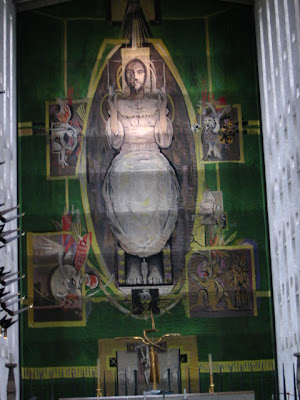This Memorial weekend I recall a book by Sebastian Junger who spent a year with 30 of our troops in eastern Afghanistan. He lived with these men from June 2007 to June 2008. That year seeing war from the inside changed his life. As he was leaving Afghanistan to come home a young soldier asked him, “Let me ask you something. Do people know that we are here?”
Those words stung me. Safe in my little house in Shelby Country I have not a single-family member in this long struggle. Like so many other Americans I have gone on with my life and my pursuits these last eight years. But that soldier’s question stays with me: Do people know that we are here?
So I decided to learn more about this war. Besides reading Junger’s book, War, I also read The Good Soldier by David Finkel. He spent fifteen months with the troops in Iraq. While Finkel was there 14 soldiers were killed, another 75 were wounded and many of those were broken for the rest of their lives. The average age of those young men was 19 years.
 Finkel’s words are haunting. “Eleven dead now. Another forty-four injured. Gunshots, burns, shrapnel. Missing hands, arms, legs, an eye. Ruptured eardrums, a mangled groin, gouged-out muscles, severed nerves. One guy took it in the stomach as he waited to use a pay phone...and a rocket landed nearby. Rockets, mortars, RPG’s, sniper fire, The Lieutenant said all this as he prepared to telephone the war’s newest widow who lived with two tiny daughters in a house in Kansas. When it was done he said, ‘That’s probably the saddest woman I’ve talked to yet.’”
Finkel’s words are haunting. “Eleven dead now. Another forty-four injured. Gunshots, burns, shrapnel. Missing hands, arms, legs, an eye. Ruptured eardrums, a mangled groin, gouged-out muscles, severed nerves. One guy took it in the stomach as he waited to use a pay phone...and a rocket landed nearby. Rockets, mortars, RPG’s, sniper fire, The Lieutenant said all this as he prepared to telephone the war’s newest widow who lived with two tiny daughters in a house in Kansas. When it was done he said, ‘That’s probably the saddest woman I’ve talked to yet.’”The soldier’s question “if the folks at home remember our troops”, led me down another road. I discovered that CNN keeps a tally of all those who have been wounded and killed in this war. In Iraq since the war began 4,773 troops have been killed. 32,000 have been wounded. In Afghanistan 2,458 of our troops have lost their lives and 11,411 have been wounded. To date, over 6,000 coalition troops from 20 countries have died. None of these figures include all those citizens in these two countries who have lost so much. Estimates of Iraq-Afghan dead are somewhere between 250,000 and 600,000. This total does not reflect the broken land, the bombed-out houses—the crying children. I couldn’t get the soldier’s question out of my head. Do people know that we are here?
So I began each month to post on my blog the names of those that have died. CNN lists most of their pictures and information about every soldier. I sat at my computer and studied the names, the faces, the ages—so many were only 18 years old. In that long list were the towns and cities these men and women came from. That list is a slice of America: Caucasian, Hispanics, African-Americans and Asian Americans. Among those could be found among all faith groups. No state has been immune to the grief of this war. Month after month the names kept coming.
And so on this Memorial Day weekend the old question keeps coming back: Do people know that we are here?” Memorial Day is an appropriate time to answer that question. The day has a long history. Three years after the Civil War ended in the month of May 1868 the head of an organization of Union veterans named this day Decoration Day. It was a time for the nation to decorate the graves of the war dead with flowers. All over the country this custom spread. By the end of the 19th century Memorial Day ceremonies were being held on May 30 throughout the nation. But it was not until after World War I that Memorial Day became a national holiday by act of Congress. Since the 1950’s 1200 soldiers in the U.S. infantry have placed flags on 260,000 gravestones at Arlington National Cemetery on this weekend.
This weekend the grief for many of our citizens will be heavy as lead. Wives, parents and children will stand by some gravestone and remember. Thousands of others will stay close to home tending their wounded from this war. Let us not forget those who have served for us. Pause some time weekend and call to mind the fallen, the broken and all those who minister to their wounds day after day. And if we keep remembering that soldier’s question, in time it might just change this whole sad picture.
(This article appeared in the op-ed section of The Birmingham News, May 29, 2011.)









